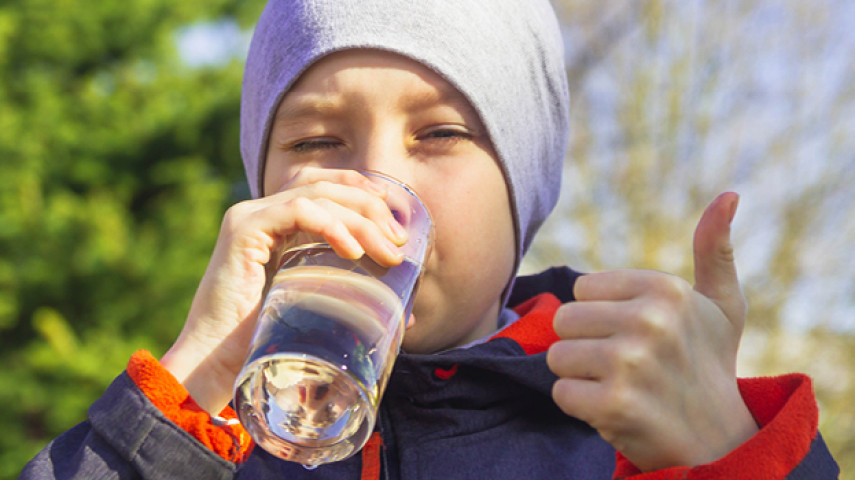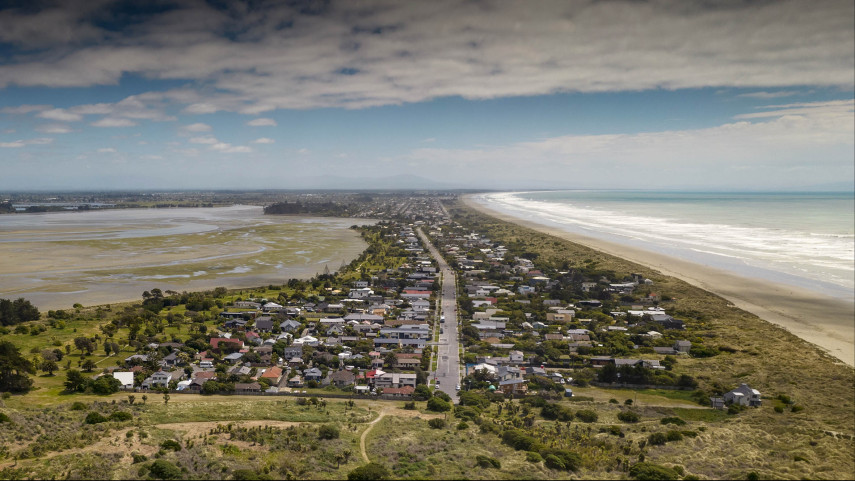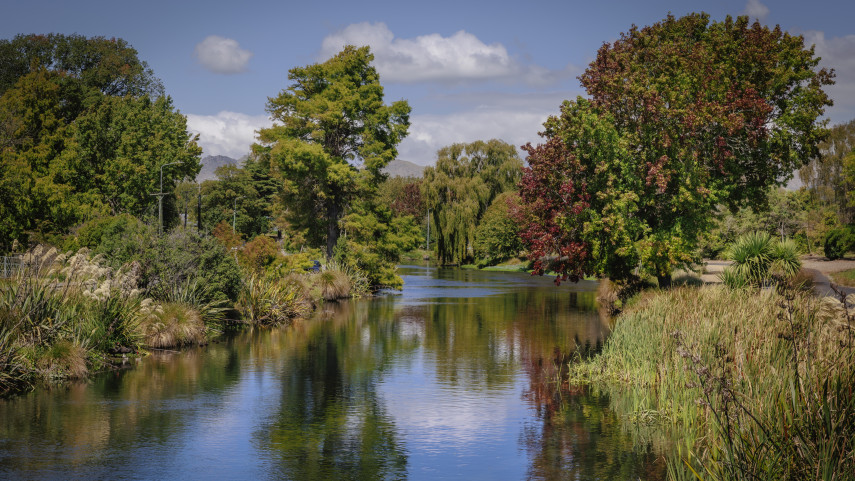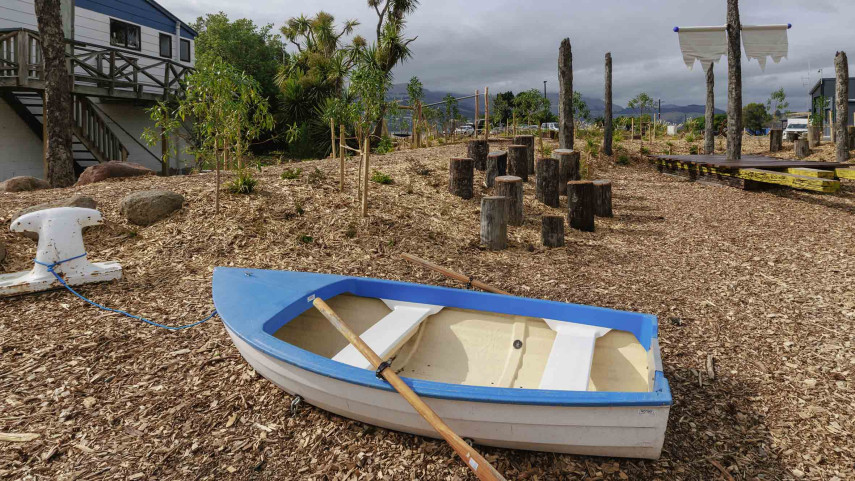Learn where our water comes from and how to be water-wise.

Book a Learning Through Action school programme
Risk analysis and management information (RAMS) will be sent out once a programme booking is confirmed. If you require this at any other stage please email LTA@ccc.govt.nz or contact us(external link).

| Year level | 5 to 13 |
|---|---|
| Curriculum level | 2 to 8 |
| Availability | Available year-round |
| Times | By arrangement. 90 minutes is required |
| Site | At your school |
| Cost | Free |
| Number of students | Maximum of 35 |
| Special requirements | Closed-in shoes must be worn |
- Water conservation and preservation.
- Personal responsibility for action.
- The water cycle.
- Aquifers.
- Local freshwater systems.
From the aquifers through to our taps, learn how to be waterwise.
Students discover how Christchurch residents access some of the world’s best water, investigate the water cycle, and compare Christchurch’s water usage with the rest of the world.
Be challenged to think of ways to conserve water and incorporate water-saving strategies into daily life.
We are learning to:
- Explain and describe the concepts of the water cycle and an aquifer.
- Describe the course water takes before it comes out of a tap.
- Understand that no matter who or where we are that we depend on water.
- Explain the reasons for conserving water.
- Identify actions that can be taken to support a sustainable water supply.
Using language, symbols and texts
Students will investigate oral and visual texts and symbols to gain an understanding of the extent to which freshwater is a precious resource.
Thinking
Students will collaboratively and independently come up with solutions on how and why to conserve water in their daily lives.
Managing self
Students will be encouraged to justify the actions they will take as a result of the information and activities they are exposed to during the programme.
Participating and contributing
Students will have the opportunity to work in small groups to plan a weekly water ration from different societies with different access to infrastructure.
Relating to others
Students will explore and discuss different societies’ access and attitudes to freshwater.
| Curriculum area | Strand and level | Objective |
|---|---|---|
| Science Pūtaiao |
Nature of Science Levels 2 to 4 |
Investigating in science Communicating in science Participating and contributing |
| Planet Earth and Beyond Levels 2 to 8 |
Earth Systems | |
| Social Sciences Tikanga ā-Iwi |
Levels 2 to 8 | Social Studies Economics Geography |
| Health and Physical Education Hauora |
Healthy communities and environment Levels 2 to 8 |
People and the environment |
| Technology Hangarau |
Nature of Technology Levels 2 to 8 |
Characteristics of technology |
| Maths Pāngarau |
Number and algebra Levels 3 to 6 |
Number strategies Number knowledge |
| Geometry and measurement Levels 3 to 6 |
Measurement | |
| Statistics Levels 3 to 8 |
Statistical investigation Statistical literacy |
Level 1
| Subject | Standard |
|---|---|
| Generic Technology | 1.7 AS91050 1.8 AS91051 1.9 AS91052 |
| Geography | 1.3 AS91009 1.6 AS91012 1.7 AS91013 |
| Science | 1.15 AS90954 |
Level 2
| Subject | Standard |
|---|---|
| Earth and Space Science | 2.2 AS91188 2.3 AS91189 2.7 AS91193 |
| Education for Sustainability | 2.1 AS90810 2.2 AS90811 2.3 AS90813 |
| Generic Technology | 2.8 AS91361 2.9 AS91362 |
| Geography | 2.6 AS91245 2.7 AS91246 |
Level 3
| Subject | Standard |
|---|---|
| Earth and Space Science | 3.2 AS91411 3.5 AS91414 |
| Education for Sustainability | 3.1 AS90828 3.4 AS90831 3.3 AS91736 |
| Generic Technology | 3.8 AS91615 |
| Geography | 3.6 AS91431 3.7 AS91432 |
| Social Studies | 3.1 AS91596 |
Related news

Landmark Southshore resource consent approved
The long-awaited project to build erosion and flood protection structures along Te Ihutai/Avon-Heathcote Estuary edge in Southshore and South New Brighton is set to begin, following the approval of resource consent this week.
4 Feb 2026
Trial aims to improve stormwater quality
A one-year trial to help stop zinc runoff getting into waterways is underway as part of Christchurch City Council’s commitment to improve urban stormwater quality.
23 Jan 2026
New play space at Lyttelton’s Naval Point now open
A ‘sinking ship’, monkey bars and dinghy are all features of a new play space at Naval Point.
14 Jan 2026